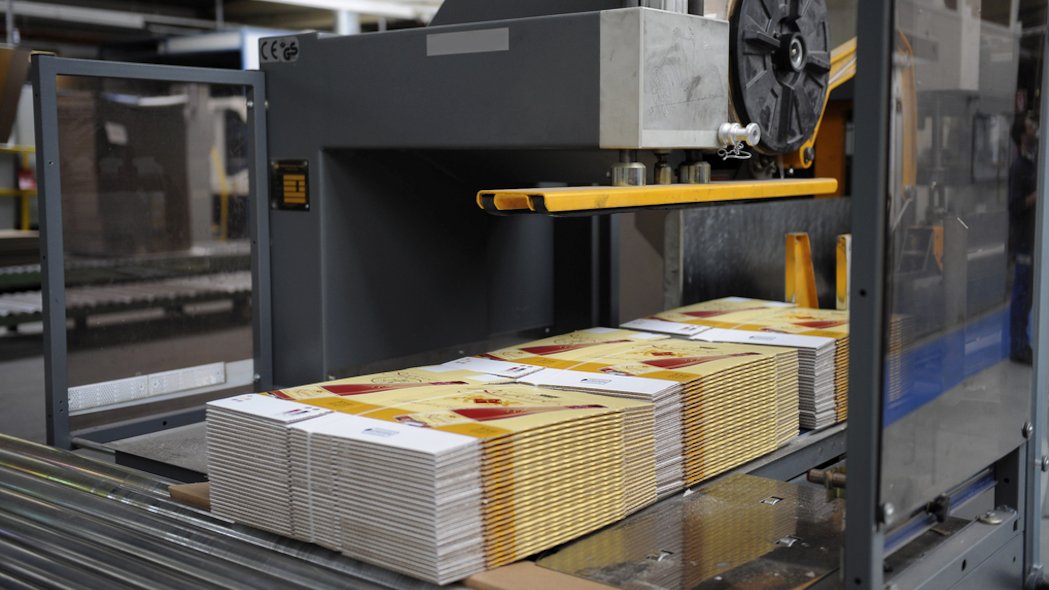Manufacturing technologies
Manufacturing technology deals with the industrial production of consumer and capital goods, which includes machines and technical systems as well as everyday products. Production technology engineers deal with planning, technical and business management issues as well as management and quality assurance.

Overview of the academic discipline
This field covers all degree programmes that deal with materials in industrial production: This concerns the specific properties of materials such as paper, wood, ceramics, glass, plastic or textiles, as well as their processing, preparation and assembly. The design of industrial products and issues of environmental protection in industrial production are also included.
Which topics are included in the curriculum?
The study options in the field of production technology are as diverse as the raw materials on earth. They all have one thing in common: basic modules in maths, mechanical engineering, electrical engineering and computer science. Compulsory elective modules also cover areas such as occupational safety, project management and marketing, which prepare students for very different positions within the value chain.
However, the advanced modules differ considerably depending on the field within manufacturing technologies:
- Bachelor's degree programmes such as ‘Print and Media Technology’ teach media technology, printing processes and control, the use of publishing software, as well as knowledge of production planning and controlling. There are also modules on occupational safety, recycling and sustainability or foreign languages. In some cases, specialisation is possible, for example in the form of digital publishing or media technology and economics. The Master's programme can focus on an industry segment or area, such as ‘Print Management’, ‘Digital Communication and Media Technologies’ or ‘Packaging Technology’.
- Degree programmes in ‘Packaging Technology’ impart fundamental mathematical and scientific knowledge and in-depth engineering skills in the fields of mechanical engineering, process engineering and materials and systems engineering for the packaging industry. In addition to topic-related modules such as ‘Packaging Printing’ and ‘Sustainable Packaging Systems’, business management subjects play a particularly important role. There is a large overlap with ‘Paper Technology’, which has been completely absorbed into ‘Packaging Technology’ at some universities.
- The modules offered on the ‘Wood Technology’ degree programme include basic and specialisation subjects in natural sciences and engineering as well as forestry and the wood industry. These subjects include process engineering in the wood and wood-based materials industry, design and production technology, design and calculations for furniture and timber construction, CNC technology, quality management, ecological issues in wood processing and business administration. Depending on what the university offers, students can specialise, for example in wood industry production, furniture construction/design or timber construction and finishing.
- In addition to the basics of (textile) chemistry, textile materials and textile products, textile technologies and the basics of textile production and finishing are taught in the ‘Textile and Clothing Technology’ degree programmes. In the further course of study, the application-oriented specialisation takes place by means of modules on automation technology, production control, CAD, safety and plant technology, fibre, weaving and knitting technology, composite materials, technical textiles, textile testing, chemical analysis, polymer chemistry, dyeing, textile printing, environmental analysis and management. Depending on the university, you can specialise in some of these areas.
- The ‘Plastics Technology’ degree programme begins with modules in mathematics, natural and engineering sciences and materials technology. Building on this, application-related modules impart knowledge of plastics, material-appropriate design and plastics processing as well as in the fields of polymer chemistry, metrology, thermal engineering, electrical and drive engineering, technical mechanics and toolmaking.
- The ‘Ceramics and Glass Technology’ degree programmes include modules in mathematics, physics and inorganic or physical chemistry. These are supplemented by mineralogy, geology, crystallography, ceramics and business subjects. Specialisation options include raw and material analysis, mechanical and thermal process engineering, glass, silicate fine ceramics, building ceramics, structural and functional ceramics, material recycling and quality assurance.
What are the requirements?
Some universities organise an internal selection procedure. In-depth knowledge of the following school subjects is helpful: Maths, computer science, chemistry, physics, English and economics/law.
What study programmes are there to choose from?
Degree programmes in manufacturing technologies are primarily offered at universities of applied sciences; the few university courses are offered as part of 2-subject Bachelor's degree programmes, as a Master's degree or as a vocational education degree programme.
Dual study programmes are also offered across all specialisations.
What job opportunities are there after graduation?
- Packaging technology engineers are needed across all sectors, from basic research into innovative packaging technologies to the assembly and commissioning of packaging lines and production systems to sales and project management in the packaging industry. The positions for graduates in other branches of production technology are somewhat more specialised.
- Print and media technology engineers mainly work in print shops, in the production of artwork, in print finishing, in supplier companies, in specialised trade for the graphic arts industry, in mechanical engineering companies (printing and bookbinding machines, etc.). Due to the declining importance of print products across all sectors, there has been a decrease in jobs in this area in recent years.
- Wood economists and wood technology engineers work primarily in the woodworking industry, for example in the sawing and planing industry, in plywood, wood fibre and chipboard factories, in furniture production, in prefabricated house construction companies, in the production of wooden building elements and wooden goods as well as in the chemical wood industry, including the production of wood preservatives, varnishes and glues.
- In addition to the clothing and textile industry, engineers in clothing and textile technology work in the chemical fibre industry as well as in the textile machinery and dye industries. Graduates also work in textile-related sectors and user markets such as the automotive and aerospace industries, for example in the development and production of car seat covers.
- In addition to the ceramics and glass industry, materials engineers specialising in ceramics and glass work wherever ceramic and glass components are used. This also includes modern technology sectors such as transport technology, vehicle construction, aerospace, the chemical industry or energy and environmental technology.
